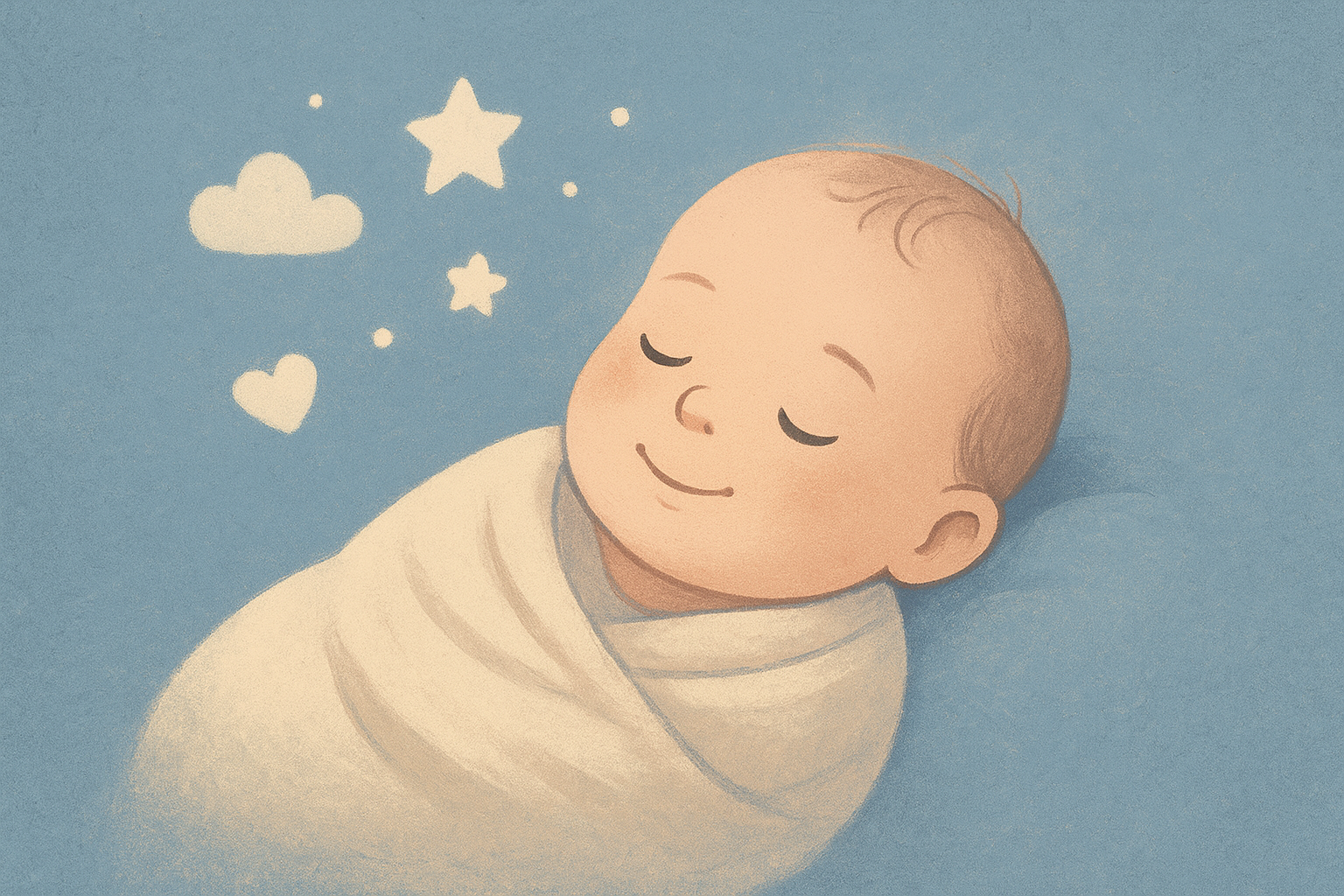If you’ve ever peeked at a sleeping baby and caught them smiling, you know how heart-melting the moment can be. Many parents wonder: why do babies smile in their sleep? Is it just a random reflex, or does it actually mean something deeper?
The truth is, babies smiling while asleep is a fascinating mix of biology, brain development, and emotional growth. From reflex smiles to genuine expressions of joy, every little grin tells a story. Let’s break down the science, myths, and meanings behind those adorable newborn sleep smiles.
Understanding Baby Sleep Patterns
To understand babies smiling, it helps to know how their sleep works. Unlike adults, newborns spend most of their time in two stages of sleep:
- Active Sleep (similar to REM in adults): Brain activity is high, and babies may twitch, make noises, or even smile.
- Quiet Sleep: This is the deep, restful stage where their bodies focus on growth and recovery.
Most smiles happen during active sleep, when the brain is busy processing sensations and forming connections. This is why a newborn laughing in sleep or smiling can seem random — but it’s actually tied to brain development.
Reflex Smiles vs. Real Smiles
When parents ask, “when do newborns smile?”, it’s important to note that not all smiles are created equal.
- Reflex Smiles (Birth to 6 Weeks): These are automatic responses. Babies may smile as their nervous system develops, often during sleep.
- Social Smiles (6–8 Weeks): This is when babies begin to smile in response to people, voices, or familiar faces. These smiles are emotionally meaningful.
- Genuine Smiles (After 2 Months): As infants grow, their smiles become intentional and linked to emotions such as happiness, comfort, or recognition.
So if your newborn is smiling in their sleep, it’s usually reflexive — but it’s also an exciting sign that their brain and emotions are growing.
Why Do Babies Smile in Their Sleep?
Here are the most common explanations backed by pediatric research:
- Neurological Development
Babies’ brains are rapidly forming neural pathways. Reflex smiles help train the facial muscles and nervous system for future emotional responses. - Dreaming or Processing Sensations
While we can’t know exactly what newborns dream, brain activity during REM-like sleep suggests they may be processing sensory input, leading to small smiles. - Emotional Regulation
Early smiles may play a role in self-soothing. A baby’s body might naturally release feel-good chemicals during sleep, causing them to grin. - Bonding Practice
Even reflex smiles prepare babies for future social smiles — one of the most important tools for bonding with parents and caregivers.
When Do Infants Start Smiling for Real?
Parents eagerly wait for the first real smile — and with good reason. It usually happens around 6 to 8 weeks old, when babies begin to recognize their caregivers.
Some signs your baby’s smile is genuine include:
- Eye contact while smiling
- Smiling in response to your voice or touch
- Repeated smiling when you engage with them
This stage is magical, as it signals the start of emotional connection.
Babies Smiling: Myths vs. Facts
There are plenty of cultural myths about newborn sleep smiles. Let’s clear some up:
- ❌ Myth: Babies smile in their sleep because they see angels.
- ✅ Fact: While it’s a sweet idea, science says these smiles are usually reflexes or linked to brain activity.
- ❌ Myth: A baby smiling in sleep means they’re happy all the time.
- ✅ Fact: Smiles in sleep don’t always reflect emotions — sometimes they’re purely neurological.
That said, cultural interpretations often bring comfort and joy to parents, so they hold symbolic value even if not backed by science.
Should Parents Be Concerned About Sleep Smiles?
Generally, babies smiling in their sleep is completely normal and healthy. It’s part of their growth. However, if your baby shows unusual symptoms (stiff movements, lack of response while awake, or no smiles beyond 3 months), it may be worth discussing with a pediatrician.
How to Encourage More Smiles
Parents naturally want to see more of those precious grins. Here’s how you can gently encourage them as your baby grows:
- Talk and sing to your baby regularly
- Maintain eye contact during feeding or playtime
- Smile often — babies mimic expressions
- Provide a calm, safe sleeping environment
These interactions not only boost smiles but also strengthen emotional bonds.
Final Thoughts
So, why do babies smile in their sleep? The answer lies in a blend of reflexes, brain development, and early emotional growth. While most smiles in newborns are reflexive, they gradually evolve into genuine social smiles — one of the most heartwarming milestones for parents.
Every sleepy grin, twitch, or giggle is part of your baby’s incredible journey of growth. So next time you see your little one smiling in their sleep, soak in the moment — it’s both science and magic at play.











